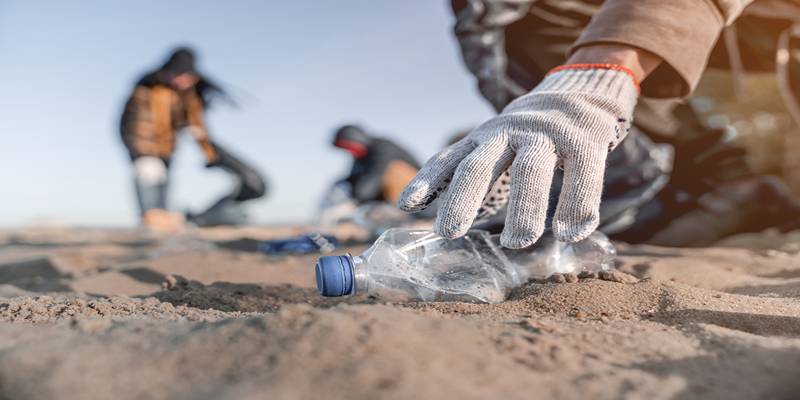Introduction
The Caribbean gets a lot of tourists every year. It is a great place to go on vacation because it has beautiful beaches, clean oceans, and lots of different cultures. The Caribbean is facing social and environmental problems that could hurt its people and natural resources as more people come. To keep travel appealing for future generations, it's important to keep it sustainable. Follow these 9 tips when you go on a trip to the Caribbean. By going in a way that doesn't harm the environment or people in the area, you can enjoy the area's amazing sights while also helping the community.
1. Choose Eco-Friendly Accommodations
When planning your trip to the Caribbean, selecting eco-friendly accommodations is a great first step toward sustainable travel. Many resorts and hotels in the region are adopting sustainable practices such as using renewable energy, recycling, and minimizing waste.
Look for accommodations with certifications like Green Globe or EarthCheck, which ensure that the property follows environmentally responsible practices. Staying in eco-conscious hotels not only reduces your environmental footprint but also supports businesses that are working to protect the Caribbean's natural beauty.
2. Support Local Communities
One of the most impactful ways to travel sustainably is by supporting the local communities you visit. Choose to buy goods and services from local artisans, markets, and restaurants. It helps keep the economy within the island, benefiting the residents who rely on tourism. Instead of large international chains, seek out small, locally-owned businesses that focus on providing authentic experiences while maintaining sustainable practices. Additionally, many local businesses use locally sourced ingredients and support community initiatives, making your purchases even more meaningful.
3. Participate in Wildlife Conservation Activities
The Caribbean is home to a wide variety of endemic wildlife, including sea turtles, coral reefs, and exotic bird species. Many Caribbean islands offer wildlife conservation programs where visitors can participate in protecting these species. Activities such as beach clean-ups, turtle nesting monitoring, and coral reef restoration efforts allow travelers to actively contribute to conservation. By joining these programs, you'll be helping to preserve the biodiversity of the region and ensuring that future generations can continue to experience its natural wonders.
Moreover, many conservation organizations in the Caribbean offer educational tours that teach visitors about local wildlife and the threats they face. This type of engagement allows you to learn about the ecosystems you are visiting while making a positive impact through hands-on involvement. Supporting these programs not only benefits the environment but also strengthens the local communities that rely on eco-tourism to fund their conservation efforts.
4. Travel Off-Season to Minimize Impact
Visiting the Caribbean during its off-season can have a significant positive effect on both the environment and local communities. The high tourist season often leads to overcrowding, increased waste, and higher demand for resources. By traveling during the off-season, you help reduce the strain on the islands' infrastructure and natural resources. Additionally, off-season travel can offer a more peaceful and less commercialized experience, allowing you to enjoy the beauty of the Caribbean without contributing to the negative effects of mass tourism.
5. Reduce Plastic Usage

Plastic pollution is a major environmental issue in the Caribbean, with many beaches and oceans becoming clogged with waste. To minimize your Impact, bring a reusable water bottle and avoid single-use plastic items such as straws, bags, and bottles. Many Caribbean destinations have initiatives in place to reduce plastic waste, and you can support these efforts by being mindful of your consumption. If you need to buy plastic items, make sure to dispose of them properly by recycling them when possible.
6. Support Eco-Friendly Transportation
Instead of relying on traditional taxis and rental cars, consider using eco-friendly transportation options while exploring the Caribbean. Many destinations offer electric vehicles, bicycles, or even walking tours as alternatives to carbon-heavy travel. You can also use public transportation, which reduces the number of vehicles on the road and helps lower emissions. In some areas, boat tours are offered on solar-powered or electric vessels, providing a cleaner way to explore coastal regions.
7. Enjoy Nature Without Damaging It
While the Caribbean's natural beauty is one of its biggest draws, it is also essential to engage with nature responsibly. Whether you're snorkeling, hiking, or exploring the beach, be sure to respect the environment. Avoid stepping on coral reefs, disturbing wildlife, or leaving trash behind. Stay on marked trails when hiking, and be mindful of fragile ecosystems. When visiting beaches, refrain from taking shells or sand as souvenirs, as this can harm the local habitat and wildlife.
8. Participate in Sustainable Tour Operators

Many tour operators in the Caribbean now offer sustainable travel experiences that focus on preserving the environment and benefiting local communities. These tours emphasize low-impact activities such as birdwatching, kayaking, and hiking rather than more disruptive ones like motorized water sports. Additionally, these tours often educate travelers about the local culture, wildlife, and conservation efforts. Choose a tour operator that follows ethical guidelines and prioritizes sustainability.
9. Practice Responsible Water Use
Although the Caribbean is renowned for its stunning beaches and crystal-clear seas, certain islands may experience water shortages. Try to use as little water as possible while you're there. Shorter showers, shutting off the water while brushing your teeth, and reusing towels rather than washing them every day are a few examples. You can support sustainability and lessen the strain on nearby water resources by being aware of how much water you use.
Conclusion
Exploring the Caribbean carefully protects its natural beauty and supports tourism-dependent communities. Choose eco-friendly accommodation, support local businesses, and help animal conservation to improve the area. Plastic waste reduction, off-season travel, and eco-friendly transportation are simple but efficient strategies to reduce your environmental Impact. These nine guidelines can help you enjoy the Caribbean while preserving it for future generations.







